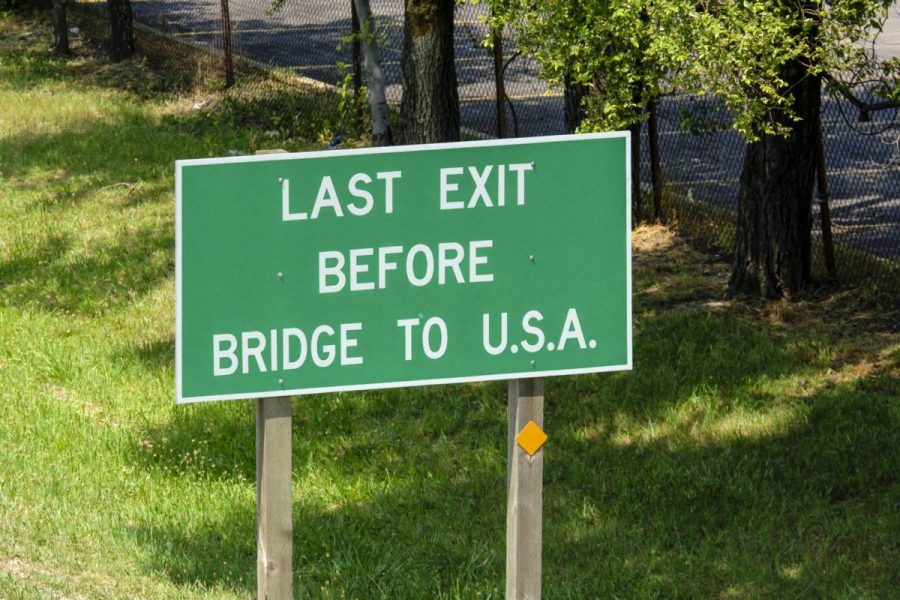Canadians crossing U.S. border may be questioned about cannabis use
Border control don’t want Canadians bringing their cannabis businesses to the U.S.
Canadians who are gearing up to indulge in recreational weed once the Cannabis Act goes into full force on October 17 could be faced with problems if they try to cross the U.S. border.
Citizens of the Great White North should prepare to divulge border guards with information pertaining to their current and past cannabis use.
According to immigration experts, border guards have been given permission to question Canadians and, if they feel necessary, guards will be able to prevent individual admission to the States for a limited amount of time or even permanently.
It’s not just cannabis consumers who are at risk of being turned away at the U.S. border either. Anyone who participates in the legal weed industry, such as investors, may also be dismissed.
Canadian Prime Minister warns Canadians about potential border problems
Prime Minister Justin Trudeau and his government are alerting travel agents and Canadians about the potential border problems that may arise once cannabis in Canada is legalized on October 17.
“Working or having involvement in the legal marijuana industry in U.S. states where it is deemed legal or Canada may affect an individual’s admissibility to the U.S.,” Mike Niezgoda said in an email. He is a spokesman for the U.S. Customs and Border Protection office in Buffalo, New York.
“Although medical and recreational marijuana may be legal in some U.S. states and Canada, the sale, possession, production, and distribution of marijuana remain illegal under U.S. federal law,” said Niezgoda.
Trudeau’s government have advised the people of Canada to remove any traces of cannabis from their vehicles or anything that may be carried on their person. They should also refrain from smoking the green stuff before attempting to cross the U.S. border.
“A lot of people don’t understand that they are still going to have problems after legalization,” said Henry Chang, who manages immigration law on the U.S. and Canadian sides of the border.
“You need to stay off the radar —if there’s something that prompts them to think that you are a marijuana user, the first question will be: ‘Do you smoke marijuana?’”
Frequent border crossers and “cannapreneurs” are at risk of questioning by guards
Certain people may feel the effects of legal cannabis in Canada more than others. For example, individuals who regularly commute across the border to visit family or for work, as well as transport workers who must cross the border to deliver different types of goods.
The executives of cannabis companies could be at risk, too, since the U.S. has not yet legalized weed at the federal level and does not want to encourage cannabis trading between borders.
“Facilitating the proliferation of the legal marijuana industry in U.S. states where it is deemed legal or Canada may affect an individual’s admissibility to the U.S.,” the executive assistant commissioner for the Office of Field Operations at the U.S. Customs and Border Protection agency, Todd Owen, revealed to Politico.
Although Owen did not state an exact minimum level of investment, he did say that U.S. border control doesn’t want Canadians bringing their cannabis businesses to Uncle Sam because it could have potential implications for the U.S. cannabis industry.
A former member of the Canadian House of Commons, Ralph Goodale, has revealed he is collaborating with U.S. law enforcement to confirm the changes and ensure Canadians experience minimal disruptions at the border.
“Despite 1 in 8 Canadians using cannabis today, 400,000 people move between our two countries every day almost entirely without incident,” Scott Bardsley, spokesman for Ralph Goodale, said in an email. “Officials from the United States have said that they do not plan on changing their questions at primary inspection after cannabis is legalized in Canada.”









